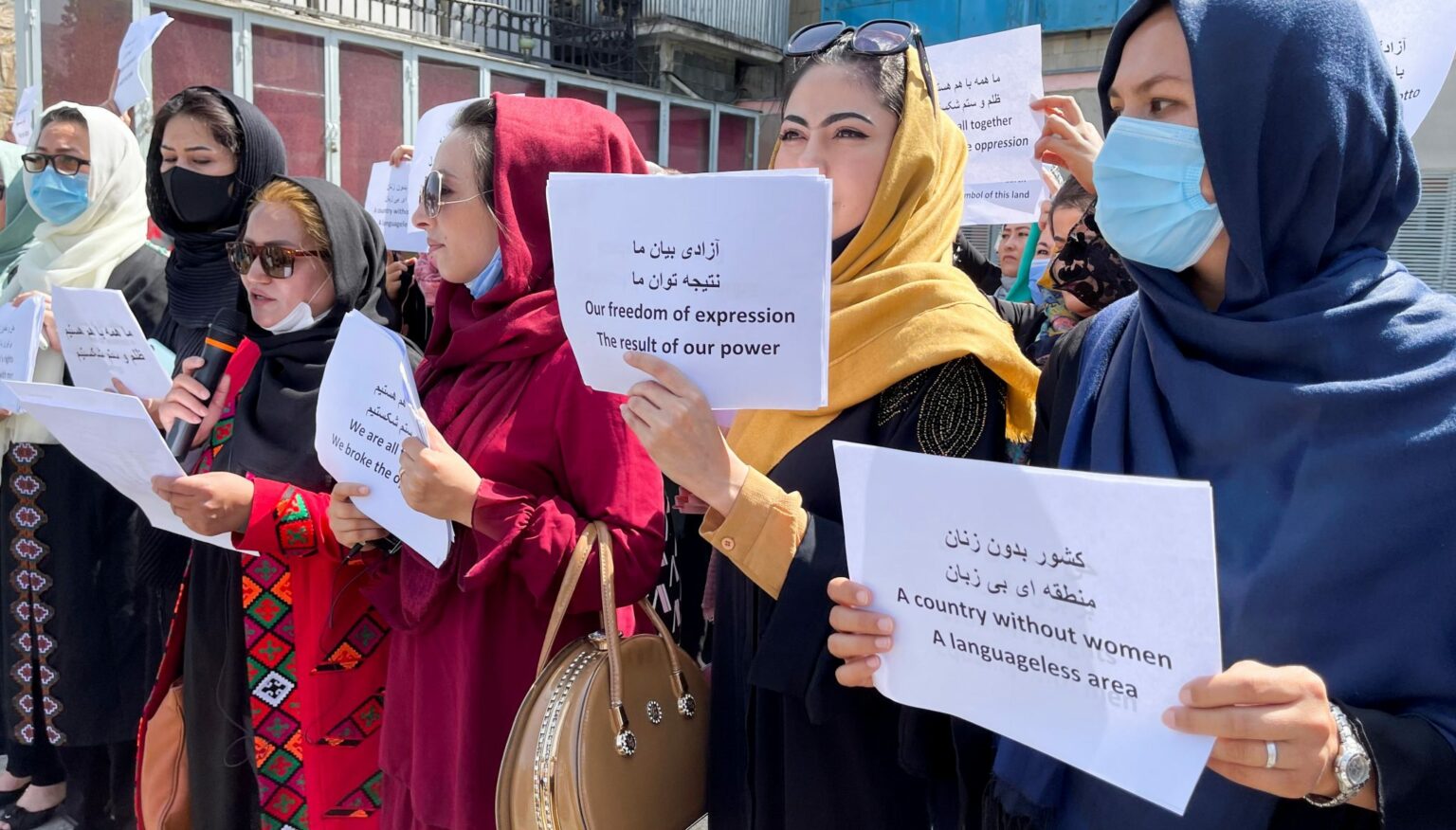By Harsha Josephine Antony | On Tue 9 Aug, 2022 | 8.45 pm IST |
Photo credit: East Asia Forum

On August 15th, the Taliban will mark one year since taking control of Afghanistan. This final day was a significant event, mourning the residents’ loss of independence. Before the occurrence, women had the freedom to go out, educate themselves, and work independently. All of this, however, came to a halt with the seizure of power. Nonetheless, women in Afghanistan are fighting this injustice.
The Taliban’s seized over Afghanistan shortly after the US Army left. The Taliban offensive in 2021 began on May 1, 2021, coinciding with the withdrawal of the US’s 2,500 troops from Afghanistan. Women have been absent from prominent government posts since the takeover, high schools for girls have been closed, and many women have lost employment. A broadcaster in Afghanistan stated she was hiding in a relative’s house, unable to return home, let alone go to work. She and other women feel the Taliban have not modified their methods. She talked anonymously because she was concerned about her safety. Monesa Mubarez will not quickly relinquish the privileges she and other Afghan women gained during 20 years of Western-backed governance. Before the extreme Islamist Taliban organisation stormed back to power a year ago, the 31-year-old worked as the finance ministry’s head of policy monitoring. Women of past generations could not have imagined such a thing in the 1990s. This sudden loss of liberty is an assault on their rights.
Mubarez is now unemployed as a result of the Taliban’s rigid interpretation of Islamic law, which severely restricted women’s capacity to work, compelled them to dress and act conservatively, and closed secondary schools to girls across the nation. The new administration has no women in the cabinet, and the Ministry of Women’s Affairs has been closed. “One war has ended, but the struggle to create a rightful place for Afghan women has started… we will raise our voice against every injustice until the last breath,” Mubarez, one of Kabul’s most renowned activists, stated.
Even after knowing that the Taliban would punish her, she participated in protests to protect her hard-won rights. Those protests have subsided; Mubarez’s last appearance was on May 10. However, she and others gather in private houses in acts of resistance, debating women’s rights and urging others to join the cause. Such gatherings would have been unimaginable during the Taliban’s reign in Afghanistan. During one such meeting at her house in July, Mubarez and several women sat in a circle on the floor, spoke about their experiences, and shouted slogans like “food,” “work,” and “freedom” as if they were at an outside protest. “We fight for our freedom, rights, and standing; we work for no country, organisation, or espionage agency. This is our nation, our hometown, and we have every right to reside here,” she told Reuters. Alison Davidian, the UN Women national representative in Afghanistan, stated that experiences like Mubarez’s are every day throughout the country. “Walking outside your front door is a regular part of life for many women worldwide,” she remarked. “It is remarkable for many Afghan women. It is a defiance act.”
The Taliban’s treatment of girls and women is one of the primary reasons the international community refuses to recognise Afghanistan’s new leadership, cutting off billions of dollars in aid and deepening the country’s economic problems. Senior officials from numerous ministries stated that women’s policies are decided by top authorities and declined to speak more. According to the Taliban leadership, all Afghans’ rights would be respected under their interpretation of Sharia. Afghanistan is the only country where girls are not permitted to attend high school. In March, the organisation stated that female secondary schools would reopen, only to reverse its decision on the morning that many girls had arrived for school with eager anticipation. Some have continued their education by enrolling in individual tutoring or online programmes. Many girls and women are missing because they were jailed for breaking the moral code or abducted and forced to marry a Taliban member. Gulestan Safari, a former female police officer, was forced to change professions after the Taliban prevented her from joining the service. Safari, 45, now does housework for other households in Kabul. “I enjoyed my work… we could afford to purchase everything we wanted; meat, fruit.” In recent years, the war-torn country has been unable to stand on its own economically and has relied heavily on remittances from overseas. On the other hand, Western funders cut off the money flow following the Taliban takeover.












